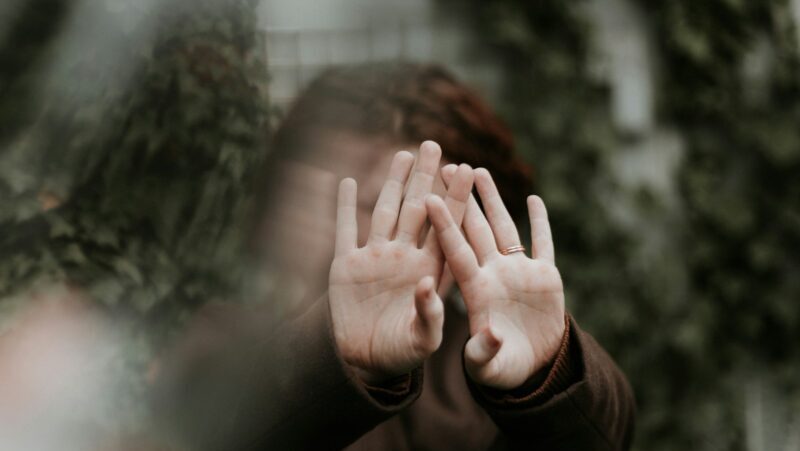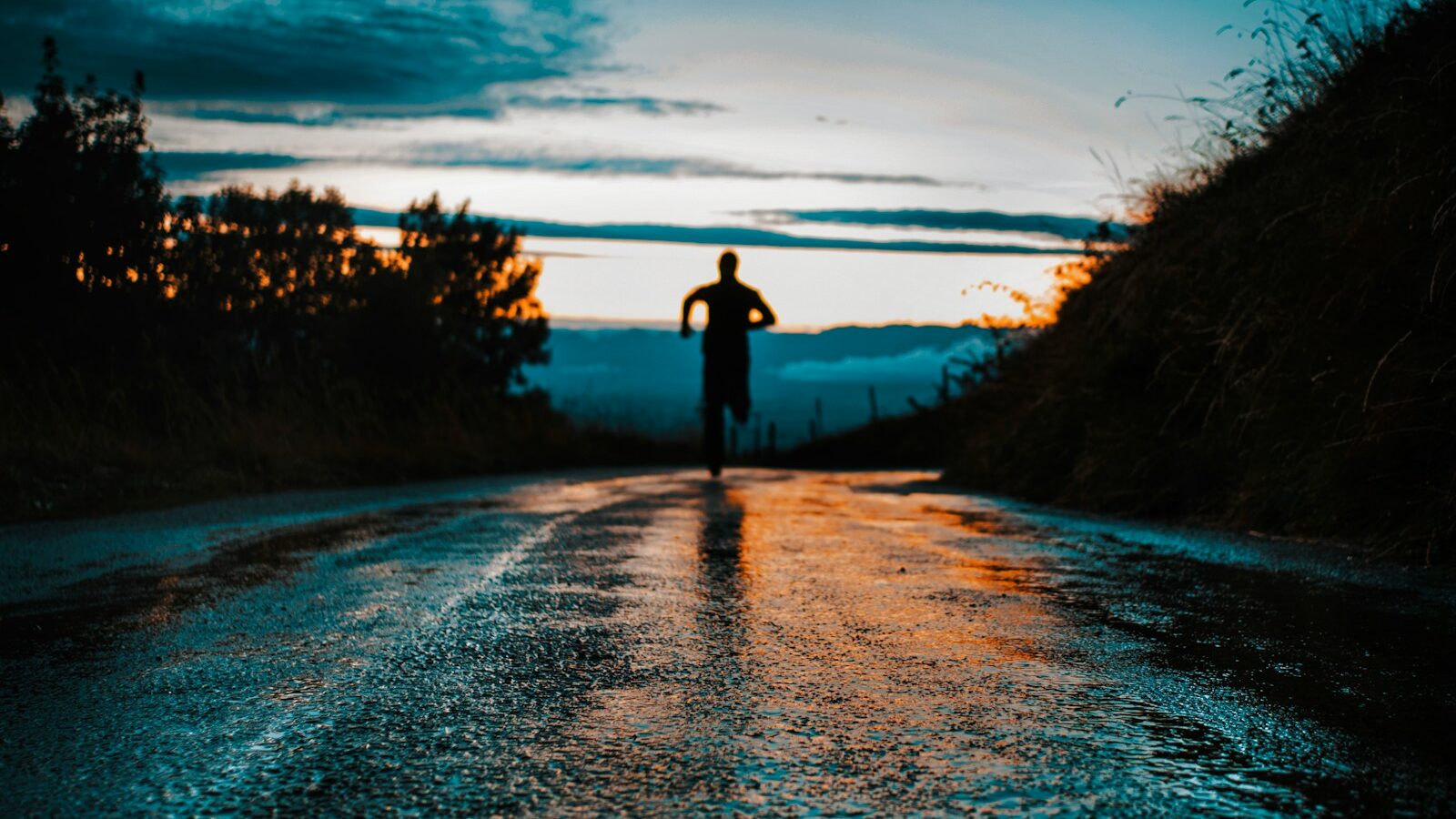As we head into a second lockdown, it’s time to appreciate what we have and the things we have learned from our experience of this pandemic so far. Often, we are more resilient than we think we are…

If you have your health, a job and someone to give you a cuddle, arguably you’ve already won. It’s dawning on many of us that we are far from out of this pandemic. The long anticipated second wave of Covid-19 advances towards us, in bumpy, localised spikes and now a second lockdown. As the days draw in, we will need to hone our winter resilience. Millions of us are already hunkering down in our home offices or kitchen workspaces.
Some front-line NHS healthcare workers say they have not yet recovered their resilience from the first wave of Covid-19. They’re still physically and psychologically tired. Some feel emotionally fragile.
Laptops on the ironing board
Whilst some workers are exhausted from relentless shifts at work, others in contrast, welcomed the call to return to their office or workplace as a blessed (and now, it seems, short-lived) relief. Particularly so for those with insufficient space or quiet to work successfully from home. Young people crammed in their childhood bedroom, flatmates logging on around the kitchen table…laptops on the ironing board [literally]…I am full of admiration for how ingenious and resourceful people have been. We have become, I hope, less spoilt. We’ve learned a lot.
Digital wellbeing
We are still finding out how to integrate different formats of flexible working. With so much dependency on screens, we need to take care of our digital wellbeing.
Leading dispersed teams
When the UK began its first lockdown in the UK in March 2020, millions of employees were flung out of their offices, factories, shops, gyms and restaurants with no idea when they might ever return. Like seeds scattered to the wind, many felt disorientated and distressed. There was no coherent plan other than try to survive.
Leaders attempted to hold their departments together and gain a handle on productivity. Many lurched into a heightened awareness of their own and other’s mental health. Every attempt on every level, was made to save the business.
Alongside logistics managers, lorry drivers and those working so hard to assure our food supply chains, were the discreet yet numerous vans of different internet providers and their army of quietly brilliant engineers. Together with the refuse collectors, these round the clock workers continue to act as another tier of our vital emergency services. They are holding together civil society.
Economic shock
All day Zoom and Teams meetings in lockdown – including multiple, simultaneous online appointments by different family members or flatmates – would not be possible if this contagion had erupted five years ago. That’s according Microsoft’s co-founder, Bill Gates on a recent interview with the editor of the Economist. Thanks to the excellent broadband internet connection to which so many ordinary citizens now have access, a huge number of jobs have been saved.
Gates believes that innovation is key to stemming the deep economic shock coming our way. We must stay creative.
Broadcasting in the dark
As we prepare for the winter months, those of us in desk based jobs running or attending on-screen meetings, will be broadcasting in the dark. Maybe metaphorically, we’ve been doing that for months already. I hope not – but if we have, let’s investigate and discuss. What are your beneath-the-surface reflections on ‘broadcasting in the dark’ during the pandemic? Who is broadcasting in the dark? What are we not seeing?
On a practical note and speaking as a former BBC news reporter, we’ll need to artfully arrange bedside lamps behind our laptops. It may be gloomy outside but employees need to look bright and breezy for job interviews, presentations and impactful team leadership events, so set up your own television studio at home and remember that in order to hold people’s attention, look at the camera on your screen, not just the screen.
Fluid mindset
It is fair to expect that over the next six to nine months, we will jolt in and out of different levels of intensity of lockdown. Leaders need to encourage a fluidity of approach. They need to defend against ‘stuck’ thinking. Let’s try to be gentle, compassionate and ‘in flow’ with self and others, both physically and psychologically. It’s important to exercise, eat well and wear our favourite comfy socks. It’s also important to celebrate what we have – like a warm home – and be really really happy with ‘enough’. To consider our cup not half full or half empty, but rather, to be grateful to have a cup.
Contagious goodwill
The Covid-19 pandemic has brought widespread anguish, but also appreciation. It has cradled an outbreak of goodwill. I feel this will continue. Kindness is contagious. Most of us have more time than we thought we had to give. Some of us have more money than we thought we could spare to assist those in need.
As my friend’s late mother used to say, ‘if you feel a little bit lost or low, do something with your hands’. Sort out the shed, help someone with their garden, volunteer at your local Food Bank, wash cars. Helping helps you, especially if you don’t have enough work, or indeed any work. Ditto learning. Learn anything – there’s currently so much on offer that’s free. Something exciting might emerge.
MQ
I’m taking a two-year outlook on this pandemic. We need to keep going and remember that resilience is a dynamic state. If things aren’t going well one day, we’re likely to recover our cheer the next. More worrying say experts, are staff who claim to be totally fine, but in fact are not.
Leaders need to carefully and caringly probe for how well people are sleeping. To keep an eye out for sliding self-care. These can be surface indicators of faltering resilience. So can a ‘hyper’ state of taking on an impossible number of tasks. MQ – tuning into mental health as an extension of EQ or emotional intelligence – will help support and maintain resilience. Crucially, it can avoid burn out. This applies to leaders not just their followers.
Bouncy resilience
At work, at home and in the community, we need to encourage each other. Even apparently capable, strong people can sometimes be self-doubting. Our strength is bound to ebb and flow. There will surely be times when we feel downhearted, but let’s not think of it as failure. Let’s regard it as a sort of bouncy resilience.
As we head into a second lockdown, it's time to appreciate what we have and the things we have learned from our experience of this pandemic so far. Often, we are more resilient than we think we are...

If you have your health, a job and someone to give you a cuddle, arguably you’ve already won. It’s dawning on many of us that we are far from out of this pandemic. The long anticipated second wave of Covid-19 advances towards us, in bumpy, localised spikes and now a second lockdown. As the days draw in, we will need to hone our winter resilience. Millions of us are already hunkering down in our home offices or kitchen workspaces.
Some front-line NHS healthcare workers say they have not yet recovered their resilience from the first wave of Covid-19. They’re still physically and psychologically tired. Some feel emotionally fragile.
Laptops on the ironing board
Whilst some workers are exhausted from relentless shifts at work, others in contrast, welcomed the call to return to their office or workplace as a blessed (and now, it seems, short-lived) relief. Particularly so for those with insufficient space or quiet to work successfully from home. Young people crammed in their childhood bedroom, flatmates logging on around the kitchen table…laptops on the ironing board [literally]…I am full of admiration for how ingenious and resourceful people have been. We have become, I hope, less spoilt. We’ve learned a lot.
Digital wellbeing
We are still finding out how to integrate different formats of flexible working. With so much dependency on screens, we need to take care of our digital wellbeing.
Leading dispersed teams
When the UK began its first lockdown in the UK in March 2020, millions of employees were flung out of their offices, factories, shops, gyms and restaurants with no idea when they might ever return. Like seeds scattered to the wind, many felt disorientated and distressed. There was no coherent plan other than try to survive.
Leaders attempted to hold their departments together and gain a handle on productivity. Many lurched into a heightened awareness of their own and other’s mental health. Every attempt on every level, was made to save the business.
Alongside logistics managers, lorry drivers and those working so hard to assure our food supply chains, were the discreet yet numerous vans of different internet providers and their army of quietly brilliant engineers. Together with the refuse collectors, these round the clock workers continue to act as another tier of our vital emergency services. They are holding together civil society.
Economic shock
All day Zoom and Teams meetings in lockdown – including multiple, simultaneous online appointments by different family members or flatmates – would not be possible if this contagion had erupted five years ago. That’s according Microsoft’s co-founder, Bill Gates on a recent interview with the editor of the Economist. Thanks to the excellent broadband internet connection to which so many ordinary citizens now have access, a huge number of jobs have been saved.
Gates believes that innovation is key to stemming the deep economic shock coming our way. We must stay creative.
Broadcasting in the dark
As we prepare for the winter months, those of us in desk based jobs running or attending on-screen meetings, will be broadcasting in the dark. Maybe metaphorically, we’ve been doing that for months already. I hope not – but if we have, let’s investigate and discuss. What are your beneath-the-surface reflections on ‘broadcasting in the dark’ during the pandemic? Who is broadcasting in the dark? What are we not seeing?
On a practical note and speaking as a former BBC news reporter, we’ll need to artfully arrange bedside lamps behind our laptops. It may be gloomy outside but employees need to look bright and breezy for job interviews, presentations and impactful team leadership events, so set up your own television studio at home and remember that in order to hold people’s attention, look at the camera on your screen, not just the screen.
Fluid mindset
It is fair to expect that over the next six to nine months, we will jolt in and out of different levels of intensity of lockdown. Leaders need to encourage a fluidity of approach. They need to defend against ‘stuck’ thinking. Let’s try to be gentle, compassionate and ‘in flow’ with self and others, both physically and psychologically. It’s important to exercise, eat well and wear our favourite comfy socks. It’s also important to celebrate what we have – like a warm home – and be really really happy with ‘enough’. To consider our cup not half full or half empty, but rather, to be grateful to have a cup.
Contagious goodwill
The Covid-19 pandemic has brought widespread anguish, but also appreciation. It has cradled an outbreak of goodwill. I feel this will continue. Kindness is contagious. Most of us have more time than we thought we had to give. Some of us have more money than we thought we could spare to assist those in need.
As my friend’s late mother used to say, ‘if you feel a little bit lost or low, do something with your hands’. Sort out the shed, help someone with their garden, volunteer at your local Food Bank, wash cars. Helping helps you, especially if you don’t have enough work, or indeed any work. Ditto learning. Learn anything – there’s currently so much on offer that’s free. Something exciting might emerge.
MQ
I’m taking a two-year outlook on this pandemic. We need to keep going and remember that resilience is a dynamic state. If things aren’t going well one day, we’re likely to recover our cheer the next. More worrying say experts, are staff who claim to be totally fine, but in fact are not.
Leaders need to carefully and caringly probe for how well people are sleeping. To keep an eye out for sliding self-care. These can be surface indicators of faltering resilience. So can a ‘hyper’ state of taking on an impossible number of tasks. MQ – tuning into mental health as an extension of EQ or emotional intelligence - will help support and maintain resilience. Crucially, it can avoid burn out. This applies to leaders not just their followers.
Bouncy resilience
At work, at home and in the community, we need to encourage each other. Even apparently capable, strong people can sometimes be self-doubting. Our strength is bound to ebb and flow. There will surely be times when we feel downhearted, but let’s not think of it as failure. Let's regard it as a sort of bouncy resilience.








